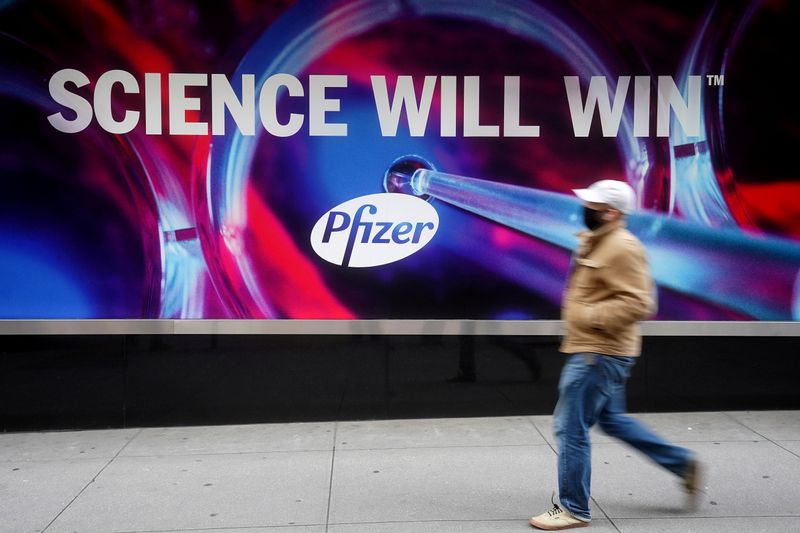One & One Green Technologies stock soars 100% after IPO debut
NEW YORK - Pfizer Inc. (NYSE:PFE), a prominent pharmaceutical company with a market capitalization of $138 billion and strong financial health according to InvestingPro metrics, announced Thursday that its drug HYMPAVZI (marstacimab) demonstrated superiority in treating hemophilia A or B patients with inhibitors, according to results from the Phase 3 BASIS study.
The trial showed HYMPAVZI reduced the annualized bleeding rate by 93% compared to on-demand treatment (1.39 vs 19.78, p
Inhibitors, which develop in approximately 20% of hemophilia A and 3% of hemophilia B patients, neutralize traditional factor replacement therapies, making them ineffective. These patients typically face more complications and treatment challenges.
"The strong bleed reduction with HYMPAVZI coupled with its weekly administration method offers exciting potential for these patients who are in critical need of treatment options," said Davide Matino, BASIS Principal Investigator and Associate Professor of Medicine at McMaster University, according to the press release.
HYMPAVZI was administered via a once-weekly subcutaneous injection using a pre-filled pen, which requires minimal preparation. The drug was generally well-tolerated with no deaths or thromboembolic events reported during the study.
Unlike factor replacement therapies, HYMPAVZI targets tissue factor pathway inhibitor (TFPI), one of the body’s natural mechanisms that inhibits blood clotting.
Pfizer plans to discuss the data with regulatory authorities to initiate regulatory filings for HYMPAVZI in hemophilia patients with inhibitors. The drug has already received regulatory approvals in the U.S. and Europe for hemophilia patients without inhibitors.
In other recent news, Pfizer announced a quarterly cash dividend of $0.43 per share for the third quarter of 2025, continuing its long-standing practice of returning value to shareholders. The dividend will be payable on September 2, 2025, to shareholders of record as of July 25, 2025. Meanwhile, the Trump administration is considering new regulations that could impact pharmaceutical advertising, potentially affecting Pfizer and other companies by making it more expensive to advertise directly to consumers. These discussions include requiring more extensive disclosures in ads and eliminating tax deductions for advertising expenses. In another development, BMO Capital analysts have highlighted potential risks for Pfizer following RFK Jr.’s decision to reshape the Advisory Committee on Immunization Practices (ACIP), which could lead to more critical evaluations of vaccine recommendations. However, the analysts suggest the immediate impact on Pfizer’s stock may be limited. Additionally, Jefferies has identified potential merger and acquisition targets in the biotech sector, noting that market conditions could lead to increased M&A activity. These developments reflect a dynamic environment for Pfizer and the broader pharmaceutical industry.
This article was generated with the support of AI and reviewed by an editor. For more information see our T&C.
